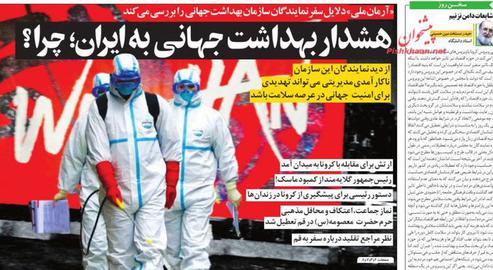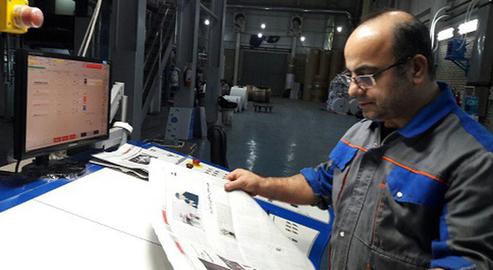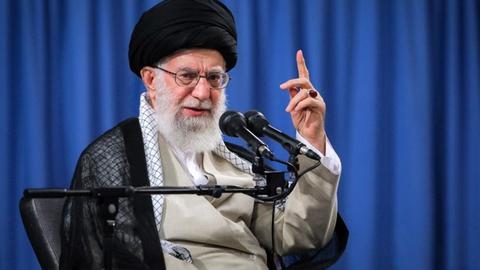According to Iran’s law enforcement and judicial authorities, since mid-February numerous social media users, citizen journalists and professional reporters have been arrested and summoned to court for having written about the coronavirus outbreak online. No explanation has been given for the reasons behind their arrests or their current condition. The general consensus is that these individuals are either being held in temporary custody, or have been released without official notice.
At the same time, due to ongoing threats to the media and the prevailing atmosphere of censorship in Iran, other journalists and reporters have instead chosen to remain silent or to publish the limited government-approved information about coronavirus. In this way, they are at least able to continue to inform people, albeit in a restricted manner.
No Legal Justification
Mehnaz Parakand, a lawyer who currently lives in Norway, told IranWire’s sister site Journalism Is Not A Crime: “The Islamic Republic’s treatment of the media and those who write on social media is repressive. It doesn’t matter whether they write about: economic, cultural, social, artistic or even sports related-issues. The activities of both social media users and journalists are included within the definition of the human right to freedom of expression. However, the Iranian government instead considers this activity to be criminal. As such, the state arrests these individuals, which has no legal basis.”
She added: “Unfortunately, the Islamic Republic does this so that even during the coronavirus crisis whilst everyone is under quarantine, it can still justify having agents from the Revolutionary Guards or the Ministry of Intelligence raid people’s homes and place them in solitary confinement in terrible conditions. The government does not want to show any form of weakness in front of the Iranian people, even in these circumstances.”
“Not one of these arrests have any legal justification,” she went on. “If we look at any of the articles in law referred to in the arrests of these individuals, we find their detention and the reasons for their detention do not actually fall within the definition of that article. The Iranian government has been doing this for decades because all the powers of the state and the three branches of government are under one set of orders. Therefore, no one is able to supervise their [the government officials’] behaviour. That is to say, every oversight organisation that operates in Iran functions as its own government. The organisations are made up of their own people and in this inner circle, they can easily set rules for themselves which they violate in order to destroy the freedom of everyday individuals. This is the nature of human rights in the Islamic Republic of Iran.”
"Disturbing the Public Mind": What the Law Says
In early March 2020, amid a flood of reportage on coronavirus in Iran, a number of Iranians were arrested and summoned to court because they had published or shared news that differed from the government’s messages about the spread of the virus. According to law enforcement authorities, “disciplinary action” was taken against these individuals, though the actions of the judiciary had no clear legal basis.
Mehnaz Parakand added: “Nowhere in the Islamic Penal Code is it stated that distributing a film or picture is a crime. If the subject of the film is something that has been criminalised, then the full legal definition of the crime itself must also be clearly shown to have been carried out. According to the law, the scope of the crime should be defined in favour of the offender and if it is not, any crime that a citizen has committed should be pardoned. The emphasis is therefore on the judiciary’s definition of the scope of the crime. This criminal definition must not blatantly restrict the freedoms of citizens or criminalise any regular behaviour. Despite the fact that these laws have been legally ratified, implementing them is not in the interests of Iranian government officials.”
All the arrests, summonses and reprimands of these citizens were carried out on charges of “disturbing the public mind”. Article 698 of the Islamic Penal Codes stipulates the following about the offence: “Anyone who, with the intent to cause damage to someone or disrupt the opinion of the authorities or the public by [sending] a letter or complaint or correspondence or petitions or reports or distribution of printed or written papers, whether signed or without a signature, lies or falsely attributes some acts to an individual or a legal person or officials, whether explicitly or implicitly or whether directly or indirectly, and whether or not it causes material or spiritual damages, in addition to restitution of the prestige [of the victim] if possible, shall be sentenced to two months to two years’ imprisonment or up to 74 lashes.”
Parakand stressed that this article had nothing to do with the recent arrests. She said: “According to the article, first one must intend to do harm to others and to disturb the public opinion and that intention must be proven in court.
“This charge must be heard in the General Courts. But all of these recent arrests have been or are being tried in the Revolutionary Courts, because the judges of these courts are under the supervision of the security institutions, and they get very clear and explicit instructions from them.
“In addition to this, according to the penal code, the disturbance of the public opinion must be carried out in written media. Therefore, the publication of films and photos would not be included under this legal provision. All of these charges must be examined in court.
“Furthermore, if the accused has told the truth, the publication is exempt from the charge of ‘disturbing the public opinion’. Unfortunately, however, these points are not important to the Islamic Republic of Iran and this accusation encompasses anything that the state wants it to.”
Social Distancing Used to Justify Print Media Blackout
One means for the Iranian government to limit media activity to prohibit certain print publications. Iran’s Coronavirus Response Headquarters recently announced that media outlets were permitted to publish content online, but the publication of paper journals and newspapers would be prohibited until social distancing laws were relaxed and the coronavirus pandemic abated.
This was met with protests from the Association of Journalists of Tehran and a number of non-governmental newspapers. Objectors argued that blocking the publication of paper journals would be detrimental to the media’s ability to provide information to the public. In response to the protests, the Headquarters changed tack and on April 7 announced that paper newspapers and journals could once again be published from April 11.
For more than 10 days, newspapers were barred from publishing due to social distancing regulations. No similar restriction has been applied to other business activities in Iran. According to custom state-run newspapers return to work one week after the start of Norooz, the Iranian new year, whereas the non-governmental newspapers begin publishing on April 1, two weeks after the start of the new year.
During this year’s Norooz holiday, judicial and law enforcement threats against the media were minimised. But with Iranian news websites and journals now restarting their work, there is the renewed concern that the social suppression of journalists and citizen reporters will increase once again.
visit the accountability section
In this section of Iran Wire, you can contact the officials and launch your campaign for various problems



























comments